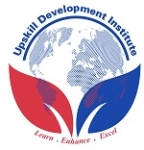|
|
Agriculture Innovation and Technology for Sustainable Development Course
USD 1,200 |
Venue: Nairobi, Kenya
Other Dates
| Venue | Date | Fee | |
|---|---|---|---|
| Nairobi, Kenya, Kenya | 10 - 14 Jun, 2024 | USD1200 |
Introduction
Agricultural innovations defined as a process whereby individuals or organizations bring new or existing products, processes or ways of organization into use for the first, are capable of improving household food security status, ensuring sustainable natural resource management, create employments and reduce poverty. In agriculture, innovations and technologies aim to increase effectiveness, competitiveness, resilience to shocks or environmental sustainability. Following the dynamic nature of technologies and innovations and the importance of agriculture in contributing to rural population livelihoods, Information Communication Technology presents an opportunity for rural farmers in increasing their productivity. This 5 days course will equip the participants with knowledge on use of ICT in agriculture to enhance productivity and increase effectiveness and efficiency across the agricultural value chain
Duration
5 days
Who Should Attend?
- Agricultural extension officers,
- Research organizations
- Non-government organizations
- Agriculture support activities and other Development programmes.
Course Objectives
Upon completion of the course, participants will be able to:
- Identify different ICT technologies applied in agriculture
- Gain basic skills in ICT in agriculture.
- Understand importance of integration of ICT in agribusiness
- Identify current ICT trends in relation to agriculture
- Understand current trends in ICTs as they pertain to agriculture and the contributions that ICT can make to enhance agricultural strategies and their implementation.
- Analyze both the opportunities and the pitfalls that emerge when working with technology to improve agricultural outcomes
- Understand the application of ICT in farm production, inventory management, and marketing and in extension services.
- Gain knowledge on gender equitable skills in ICT development in agriculture which is a major player towards rural development.
Course Content
Module 1: Introduction to ICT in agricultural development
- Mobile devices and services and their impact on agriculture and rural development
- Gender-equitable, ICT-enabled agricultural development
- Increasing crop, livestock, and fishery productivity through ICT
Module 2: ICTs as enablers of agricultural innovation systems
- Broadening smallholders’ access to financial services through ICT
- ICT application in farmer organizations
- ICT enabled agricultural extension
Module 3: Strengthening agricultural marketing with ICT
- ICT applications for smallholder inclusion in agribusiness supply chains
- ICT applications for agricultural risk management
- Improving food safety and traceability while empowering smallholders through ICT
Module 4: Strengthening rural governance, institutions, and citizen participation using ICT
- Field visit to organization using ICT in agriculture
Module 5:
- ICT for land administration and management
- Inventory management with ICT
- GIS and RS application in agriculture
Training Approach
This course will be delivered by our skilled trainers who have vast knowledge and experience as expert professionals in the fields. The course is taught in English and through a mix of theory, practical activities, group discussion and case studies. Course manuals and additional training materials will be provided to the participants upon completion of the training.
Tailor-Made Course
This course can also be tailor-made to meet organization requirement.
Training Venue
The training will be held at our Upskill Training Centre. We also offer training for a group at requested location all over the world. The course fee covers the course tuition, training materials, two break refreshments, and buffet lunch.
Visa application, travel expenses, airport transfers, dinners, accommodation, insurance, and other personal expenses are catered by the participant
Certification
Participants will be issued with Upskill certificate upon completion of this course.
| Nairobi, Kenya | May 13 - 17 May, 2024 |
| Nairobi, Kenya, Kenya | 10 - 14 Jun, 2024 |
| USD 1,200.00 | |
Daniel Ndungu +254721331808
Related Courses
 Agricultural Value Chain Development and Market Linkages Course
Agricultural Value Chain Development and Market Linkages Course
12 days, 20 - 31 May, 2024
Upskill Development Institute
 Training on Establishing and Strengthening Farmer Organizations
Training on Establishing and Strengthening Farmer Organizations
5 days, 20 - 24 May, 2024
Upskill Development Institute
 Information Security and Data Management Course
Information Security and Data Management Course
5 days, 29 Apr - 03 May, 2024
Upskill Development Institute




